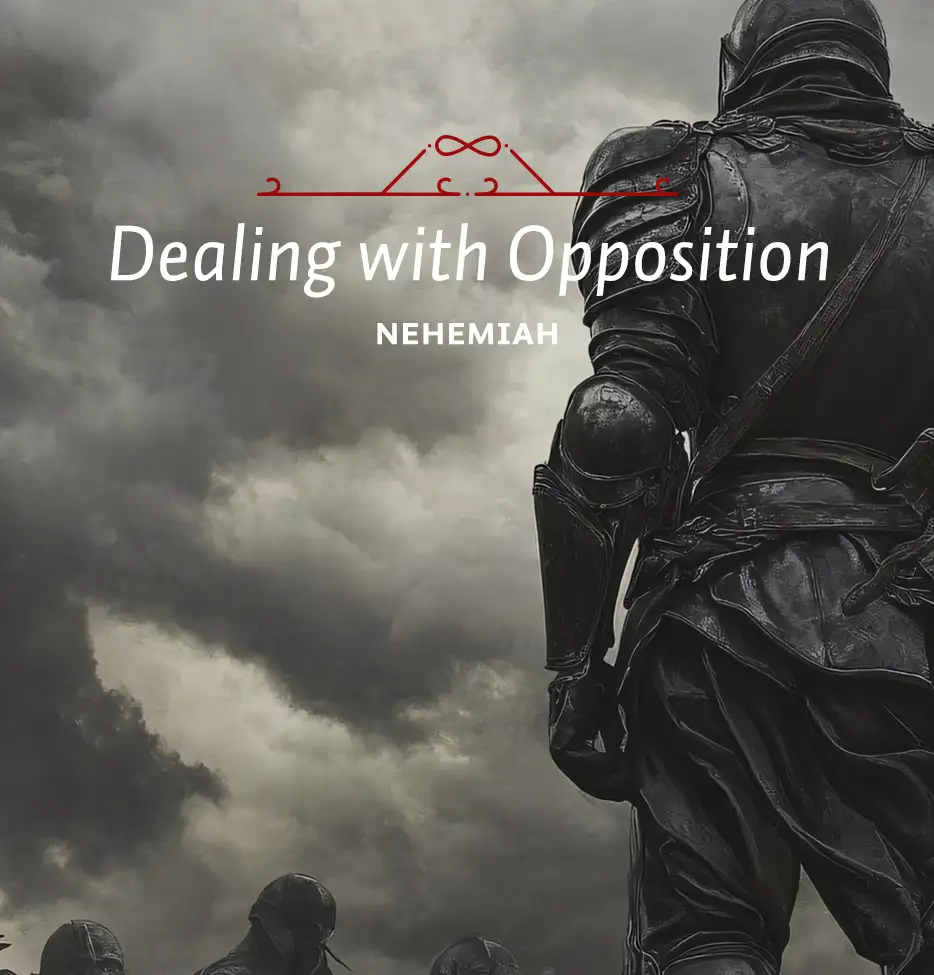One day a farmer, who was a Quaker, was having trouble with his mule. He was trying to plow his field and the mule was being unusually stubborn. He wouldn’t move. So the Quaker decided to talk to him “reasonably.” He said, “Thou knowest I am a Quaker. Thou knowest I can’t curse thee. Thou knowest I can’t whip thee. What thou does not know is that I can sell thee to my neighbor down the road. He is no Quaker, and he can beat the living daylights out of thee.”
We have all faced situations in which we feel like that Quaker. We are aware of ways we cannot or should not respond to opposition. But what we want is a permissible way to whip it.
In the fourth, fifth and sixth chapters of Nehemiah we see how Nehemiah dealt successfully with six forms of opposition.
Opposition is almost always caused by success and not failure. So the first thing we should know, if we are trying to do something worthwhile and are being opposed, is that it is because we are achieving something. We should be encouraged by it. We see this in Nehemiah’s case in the very first verse of the chapter: “When Sanballat heard that we were rebuilding the wall, he became angry and was greatly incensed” (Neh. 4:1). The reason Sanballat was angry was that the wall was actually being rebuilt and he was threatened by Nehemiah’s success in building it. Nobody would have paid any attention if Nehemiah was failing.
Why do people oppose successful things? Why aren’t they happy to see someone else succeed?
Howard F. Vos suggests several reasons.
1. Some people are threatened by another person’s success. As Vos says, “Some will oppose [another person or work] because they stand to lose position or power or prestige politically, religiously or socially.”1 Ours is a sinful world, and very few people are altruistic. They are out for themselves. Therefore, if another moves forward, they see it as diminishing their own prestige or position.
This was what was happening in the case of Nehemiah’s opponents: Sanballat the Horonite, Tobiah the Ammonite, and the unnamed Arabs, Ammonites and people of Ashdod associated with them. They governed to the north and east of Jerusalem and have already been introduced in chapter 2.
In the old days several great trade routes went through Jerusalem on their way to Egypt, Persia, Arabia or Asia Minor. Sanballat and Tobiah perceived rightly that if Jerusalem were rebuilt, much of this valuable trade would return to it and their provinces would be diminished proportionately.
2. Others are jealous. Sometimes opposition arises not because there is any real threat to a person but because of simple jealousy. Sometimes a worker will criticize a colleague because the colleague is doing a better job or is working harder than he is. A woman will criticize another woman merely because she is more attractive, shows greater intelligence or is more successful at her work. Jealousy is a cause of disharmony among leaders in the Christian church, though it is usually disguised as a doctrinal or ecclesiastical disagreement. But the real cause is jealousy of the other man’s success.
This was a factor in the attacks of Sanballat and Tobiah on the Jews’ project. They despised the Jews and were jealous of any attempts to improve their earthly prospects. That is why Nehemiah wrote in chapter 2, “They were very much disturbed that someone had come to promote the welfare of the Israelites” (v. 10).
1Howard F. Vos, Bible Study Commentary: Ezra, Nehemiah, and Esther (Grand Rapids, MI: Zondervan Publishing House, 1987), 99.






